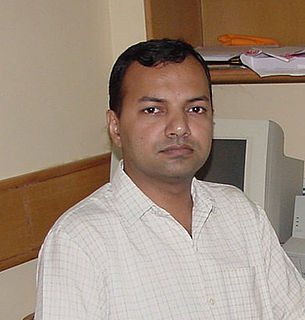 W
WManindra Agrawal is a professor at the Department of Computer Science and Engineering and the Deputy Director at the Indian Institute of Technology, Kanpur. He was also the recipient of the first Infosys Prize for Mathematics, the Godel Prize in 2006; and the Shanti Swarup Bhatnagar Award in Mathematical Sciences in 2003. He has been honoured with Padma Shri in 2013.
 W
WEduardo Arzt is an Argentine molecular biologist, Master in Experimental Biology, Doctor (Ph.D) from the Faculty of Pharmacy and Biochemistry. Currently, he is a senior researcher at CONICET, distinguished professor of the Faculty of Natural Sciences of the University of Buenos Aires, External Scientific Member of the Max Planck Society (Germany) and director of the Biomedicine Research Institute of Buenos Aires – CONICET – Partner Institute of the Max Planck Society.
 W
WArtur Avila Cordeiro de Melo is a Brazilian mathematician naturalized French working primarily on dynamical systems and spectral theory. He is one of the winners of the 2014 Fields Medal, being the first Latin American and lusophone to win such an award. He has been a researcher at both the IMPA and the CNRS. He has been a professor at the University of Zurich since September 2018.
 W
WBiman Bagchi is an Indian scientist currently serving as a SERB-DST National Science Chair Professor and Honorary Professor at the Solid State and Structural Chemistry Unit of the Indian Institute of Science. He is a Theoretical Physical Chemist and Biophysicist known for his research in the area of statistical mechanics; particularly in the study of phase transition and nucleation, solvation dynamics, mode-coupling theory of electrolyte transport, dynamics of biological macromolecules, protein folding, enzyme kinetics, supercooled liquids and protein hydration layer. He is an elected fellow of the Indian National Science Academy, the Indian Academy of Sciences, The World Academy of Sciences and an International honorary member of the American Academy of Arts and Sciences. Along with several scientific articles, he has authored two books, Molecular Relaxation in Liquids and Water in Biological and Chemical Processes: From Structure and Dynamics to Function
 W
WSantanu Bhattacharya is an Indian bioorganic chemist and a professor at the Indian Institute of Science. He is known for his studies of unnatural amino acids, cyclic peptides and biologically active natural products and is an elected fellow of the Indian National Science Academy The World Academy of Sciences and the Indian Academy of Sciences The Council of Scientific and Industrial Research, the apex agency of the Government of India for scientific research, awarded him the Shanti Swarup Bhatnagar Prize for Science and Technology, one of the highest Indian science awards, in 2003, for his contributions to chemical sciences. He is also a recipient of the National Bioscience Award for Career Development of the Department of Biotechnology (2002) and the TWAS Prize (2010).
 W
WFrancisco Gonzalo Bolívar Zapata is a Mexican biochemist and professor.
 W
WCésar Leopoldo Camacho Manco, better known as simply César Camacho, is a Peruvian-born Brazilian mathematician and former director of the IMPA. His area of research is dynamical systems theory.
 W
WManfredo Perdigão do Carmo was a Brazilian mathematician, doyen of Brazilian differential geometry, and former president of the Brazilian Mathematical Society. He was at the time of his death an emeritus researcher at the IMPA.
 W
WJuan Carlos Castilla Zenobi is a marine biologist. He received his PhD from the University of Wales. Since 1965, he has been a faculty member at the Pontificia Universidad Católica de Chile. In 1985, he published a paper on a study which focused on a part of the Chilean coastline from which humans had been excluded. He is a recipient of the 1996 TWAS Prize and the 2011 Ramon Margalef Prize in Ecology.
 W
WFernando Codá dos Santos Cavalcanti Marques is a Brazilian mathematician working mainly in geometry, topology, partial differential equations and Morse theory. He is a professor at Princeton University. In 2012, together with André Neves, he proved the Willmore conjecture.
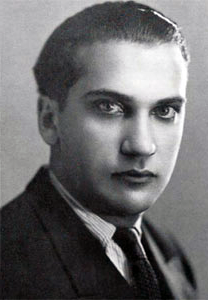 W
WJacinto Convit García was a Venezuelan physician and scientist, known for developing a vaccine to prevent leprosy and his studies to treat cancer. He played a role in founding Venezuela's National Institute of Biomedicine and held many leprosy-related positions. Among Convit's many honors for his work on leprosy and tropical diseases was Spain's Prince of Asturias Award in the Scientific and Technical Research category and France's Legion of Honor. In 1988, Convit was nominated for a Nobel Prize in Medicine for his experimental anti-leprosy vaccine.
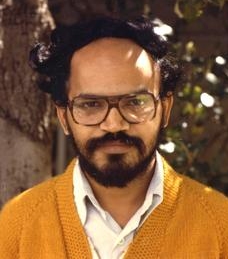 W
WShrikrishna Gopalrao Dani is a Professor of mathematics at the Centre for Excellence in Basic Sciences, Mumbai who works in the broad area of ergodic theory.
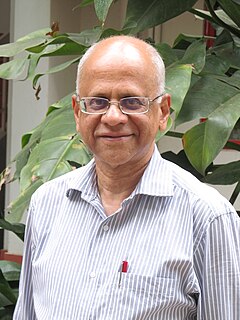 W
WGautam Radhakrishna Desiraju is an Indian chemist and educationist who has contributed substantially to the themes of crystal engineering and weak hydrogen bonding. He has authored books on these subjects. He has co-authored a textbook in crystal engineering (2011). He is one of the most highly cited Indian scientists and has been recognised by awards such as the Alexander von Humboldt Forschungspreis, the ISA Medal for Science 2018 of the University of Bologna and the TWAS Prize in Chemistry. He served as President of the International Union of Crystallography for the triennium 2011–2014.
 W
WAlicia Dickenstein is an Argentine mathematician known for her work on algebraic geometry, particularly toric geometry, tropical geometry, and their applications to biological systems. She is a full professor at the University of Buenos Aires, a 2019 Fellow of the American Mathematical Society, a former vice-president of the International Mathematical Union (2015–2018), and a 2015 recipient of The World Academy of Sciences prize.
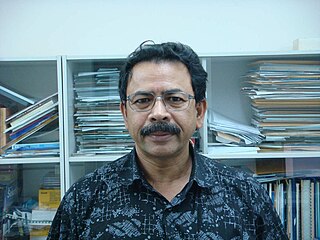 W
WShah Mohammad Faruque is a professor in the School of Environment and Life Sciences at Independent University Bangladesh (IUB). He is widely recognized for his research in Vibrio cholerae, the bacterium which causes the epidemic diarrhoeal disease Cholera. Among other positions, previously he was a professor at BRAC University; director of the Genomics Centre at the International Centre for Diarrhoeal Disease Research, Bangladesh (ICDDR,B), and formerly director of the Centre for Food and Water Borne Diseases in ICDDR,B. His areas of research interest include microbial genomics, bacteriophages, environmental microbiology, ecology, and evolution of bacterial pathogens, particularly those associated with waterborne and foodborne diseases. Faruque is primarily known for his work in genomics, epidemiology and ecology of the cholera pathogen, and its bacteriophages.
 W
WRaghavendra Gadagkar is a full professor at the Centre for Ecological Sciences, Indian Institute of Science in Bangalore, India, who studies evolution of social behaviour using eusocial insects using Ropalidia marginata, a locally common wasp as a model. He was, from 2014 to 2016, the president of the Indian National Science Academy.
 W
WRodolfo Gambini is a physicist and professor of the Universidad de la Republica in Montevideo, Uruguay and a visiting professor at the Horace Hearne Institute for Theoretical Physics at the Louisiana State University.
 W
WGao Fu, also known as George Fu Gao, is a Chinese virologist and immunologist. He has served as Director of the Chinese Center for Disease Control and Prevention since 2017 and Dean of the Savaid Medical School of the University of Chinese Academy of Sciences since 2015.
 W
WRajesh Gopakumar is a theoretical physicist and the director of the International Centre for Theoretical Sciences (ICTS-TIFR) in Bangalore, India. He was previously a professor at Harish-Chandra Research Institute (HRI) in Prayagraj, India. He is known for his work on topological string theory.
 W
WAnil Kumar Gupta is an Indian scholar in the area of grassroots innovations. He is the founder of the Honey Bee Network. He retired as a full-time professor at the Indian Institute of Management, Ahmedabad in 2017, where he served for about 36 years. He is a visiting faculty at the institute now. He held an executive vice-chair at the National Innovation Foundation, where he is a member of its governing board now. He is also a fellow of the World Academy of Art and Science. He was awarded the Padma Shri in 2004 for his contributions to management education.
 W
WMario Andrés Hamuy Wackenhut is a Chilean Astronomer and Professor of Astronomy at the University of Chile and Cerro Calan Observatory. He is well known for his observational work on all classes of supernovae, especially the use of Type Ia and Type II supernovae as measures of cosmic distance.
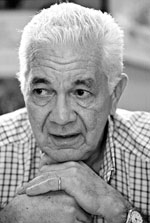 W
WIvan Antonio Izquierdo was an Argentine Brazilian scientist and a pioneer in the study of the neurobiology of learning and memory.
 W
WEluvathingal Devassy Jemmis or E. D. Jemmis is a Professor of theoretical chemistry at the Indian Institute of Science, Bangalore, India. He was the founding Director of Indian Institute of Science Education and Research, Thiruvananthapuram (IISER-TVM). His primary area of research is applied theoretical chemistry with emphasis on structure, bonding and reactivity, across the periodic table of the elements. Apart from many of his contributions to applied theoretical chemistry, an equivalent of the structural chemistry of carbon, as exemplified by the Huckel 4n+2 Rule, benzenoid aromatics and graphite, and tetrahedral carbon and diamond, is brought in the structural chemistry of boron by the Jemmis mno rules which relates polyhedral and macropolyhedral boranes to allotropes of boron and boron-rich solids. He has been awarded Padma Shri in Science and Engineering category by the Government of India.
 W
WQuarraisha Abdool Karim, is an infectious diseases epidemiologist and co-founder and Associate Scientific Director of CAPRISA. She is Professor in Clinical Epidemiology, Columbia University, New York and Pro-Vice Chancellor for African Health, University of KwaZulu-Natal, South Africa.
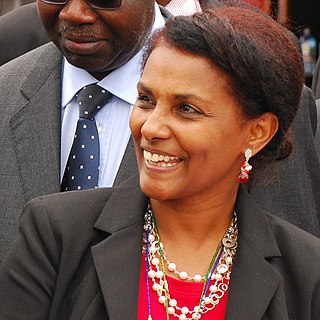 W
WSegenet Kelemu is an Ethiopian scientist, noted for her research as a molecular plant pathologist, and outstanding scientific leadership. For close to three decades, Kelemu and her team's research has contributed to addressing agricultural constraints in Africa, Asia, Latin America and North America.
 W
WAlexander Wilhelm Armin Kellner is a Brazilian geologist and paleontologist who is a leading expert in the field of studying pterosaurs. His research has focused mainly on fossil reptiles from the Cretaceous Period, including extinct dinosaurs and crocodylomorphs.
 W
WKim Kimoon is a South Korean chemist and professor in the Department of Chemistry at Pohang University of Science and Technology (POSTECH). He is the first and current director of the Center for Self-assembly and Complexity at the Institute for Basic Science. Kim has authored or coauthored 300 papers which have been cited more than 30,000 times and he holds a number of patents. His work has been published in Nature, Nature Chemistry, Angewandte Chemie, and JACS, among others. He has been a Clarivate Analytics Highly Cited Researcher in the field of chemistry in 2014, 2015, 2016.
 W
WCesare Mansueto Giulio Lattes, also known as César Lattes, was a Brazilian experimental physicist, one of the discoverers of the pion, a composite subatomic particle made of a quark and an antiquark.
 W
WChih-Kung Lee is a Taiwanese mechanical engineer. He received his B.S. degree in civil engineering from National Taiwan University and then obtained his M.S. and Ph.D. degrees from Cornell University, majoring in theoretical & applied mechanics, with a minor in physics. He is known as the inventor of modal sensors and actuators. In the past, he has been an advisor to the Ministry of Education, Ministry of Economic Affairs and various other governmental agencies, as well as the director general of engineering & applied sciences at Taiwan's National Science Council (NSC). Currently, he is the chairman of Industrial Technology Research Institute (ITRI) and Institute for Information Industry (III). He is also a distinguished professor of the Graduate Institute of Electronics Engineering, the Institute of Applied Mechanics (IAM) and the Dept. of Engineering Science & Ocean Engineering at National Taiwan University.
 W
WSusana López Charretón is a Mexican virologist specialized in understanding the mechanisms of infection of rotavirus. López Charretón has led a research program as principal investigator at the Biotechnology Institute (UNAM) in Cuernavaca, Mexico for over 25 years.
 W
WWelington Celso de Melo was a Brazilian mathematician. Known for his contributions to dynamical systems theory, he served as full professor at Instituto Nacional de Matemática Pura e Aplicada from 1980 to 2016. Melo wrote numerous papers, one being a complete description of the topological behavior of 1-dimensional real dynamical systems . He proved the global hyperbolicity of renormalization for Cr unimodal maps. He was a recipient of the 2003 TWAS Prize.
 W
WShiraz Naval Minwalla is an Indian theoretical physicist and string theorist. He is a faculty member in the Department of Theoretical Physics at Tata Institute of Fundamental Research, Mumbai. Prior to his present position, Minwalla was a Harvard Junior Fellow and subsequently an Assistant Professor at Harvard University.
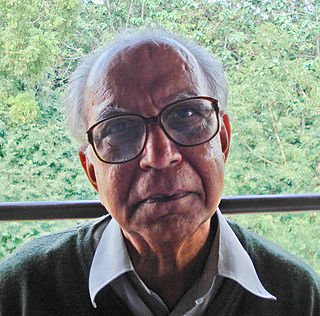 W
WMudumbai Seshachalu Narasimhan FRS was an Indian mathematician. His focus areas included number theory, algebraic geometry, representation theory, and partial differential equations. He was a pioneer in the study of moduli spaces of holomorphic vector bundles on projective varieties. His work is considered the foundation for Kobayashi–Hitchin correspondence that links differential geometry and algebraic geometry of vector bundles over complex manifolds. He was also known for his collaboration with mathematician C. S. Seshadri, for their proof of the Narasimhan–Seshadri theorem which proved the necessary conditions for stable vector bundles on a Riemann surface.
 W
WThanu Padmanabhan was an Indian theoretical physicist and cosmologist whose research spanned a wide variety of topics in gravitation, structure formation in the universe and quantum gravity. He published nearly 300 papers and reviews in international journals and ten books in these areas. He made several contributions related to the analysis and modelling of dark energy in the universe and the interpretation of gravity as an emergent phenomenon. He was a Distinguished Professor at the Inter-University Centre for Astronomy and Astrophysics (IUCAA) at Pune, India.
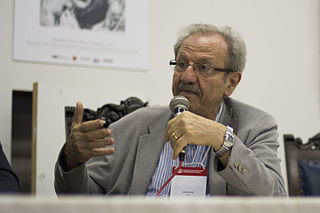 W
WJacob Palis Jr. is a Brazilian mathematician and professor. Palis' research interests are mainly dynamical systems and differential equations. Some themes are global stability and hyperbolicity, bifurcations, attractors and chaotic systems.
 W
WRaman Parimala is an Indian mathematician known for her contributions to algebra. She is the Arts & Sciences Distinguished Professor of mathematics at Emory University. For many years, she was a professor at Tata Institute of Fundamental Research (TIFR), Mumbai. She has been on the Mathematical Sciences jury for the Infosys Prize from 2019 and is on the Abel prize selection Committee 2021/2022.
 W
WKalyanapuram Rangachari Parthasarathy is professor emeritus at the Indian Statistical Institute and a pioneer of quantum stochastic calculus.
 W
WManuel Elkin Patarroyo Murillo is a Colombian Professor of Pathology and Immunology who made the world's first attempt to create a synthetic vaccine against the protozoal parasite Plasmodium falciparum, the cause of severe malaria, and responsible for the death of ~1.5 million people per year in tropical and subtropical regions, including parts of the Americas, Asia, and Africa.
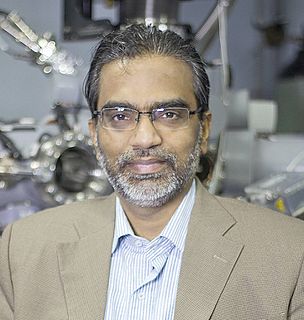 W
WThalappil Pradeep is an institute professor and professor of chemistry in the Department of Chemistry at the Indian Institute of Technology Madras. He is also the Deepak Parekh Chair Professor. In 2020 he received the Padma Shri award for his distinguished work in the field of Science and Technology. He has received the Nikkei Asia Prize (2020), The World Academy of Sciences (TWAS) prize (2018), and the Shanti Swarup Bhatnagar Prize for Science and Technology in 2008 by Council of Scientific and Industrial Research.
 W
WMadabusi Santanam "M. S." Raghunathan FRS is an Indian mathematician. He is currently Head of the National Centre for Mathematics, Indian Institute of Technology, Mumbai. Formerly Professor of eminence at TIFR in Homi Bhabha Chair. Raghunathan received his PhD in Mathematics from (TIFR), University of Mumbai; his advisor was M. S. Narasimhan. Raghunathan is a Fellow of the Royal Society, of the Third World Academy of Sciences, and of the American Mathematical Society and a recipient of the civilian honour of Padma Bhushan. He has also been on the Mathematical Sciences jury for the Infosys Prize from 2016.
 W
WTiruppattur Venkatachalamurti Ramakrishnan is an Indian theoretical physicist known for his contributions in condensed matter physics. He is at present DAE Homi Bhabha Professor of Physics at Benaras Hindu University and also the chancellor of Tripura University.
 W
WRengaswamy Ramesh (1956–2018) was an Indian climatologist, oceanographer, a former Prof. Satish Dhawan Professor at the Physical Research Laboratory and a senior professor at the National Institute of Science Education and Research, Bhubaneswar. He was known for paleo-climatic and paleo-oceanographic studies and was an elected fellow of all the three major Indian science academies viz. Indian National Science Academy, Indian Academy of Sciences, and the National Academy of Sciences, India as well as of The World Academy of Sciences. The Council of Scientific and Industrial Research, the apex agency of the Government of India for scientific research, awarded him the Shanti Swarup Bhatnagar Prize for Science and Technology, one of the highest Indian science awards for his contributions to Earth, Atmosphere, Ocean and Planetary Sciences in 1998.
 W
WDarshan Ranganathan was an organic chemist from India who was known for her work in bio-organic chemistry, including "pioneering work in protein folding." She was also recognized for her work in "supramolecular assemblies, molecular design, chemical simulation of key biological processes, synthesis of functional hybrid peptides and synthesis of nanotubes."
 W
WSyed Safiullah was a Bangladeshi academic of Chemistry. He was a professor in the Faculty of Mathematical & Physical Sciences at Jahangirnagar University (JU), Bangladesh. He was widely recognized for his research and innovation of Shushama fertilizer and fish feed, Safi Filter, and Safi Fuel. Among other positions, he was the former professor of chemistry and founder chairperson of environmental sciences department and Institute of Life Science at Jahangirnagar University (JU). His areas of interest covered environmental, material, synthetic, and applied chemistry. Safiullah is known for his work on arsenic pollution investigations, organic matter characterizations and environmental chemistry.
 W
WAshoke Sen, FRS is an Indian theoretical physicist and distinguished professor at the Harish-Chandra Research Institute, Allahabad. He is also an honorary fellow in National Institute of Science Education and Research (NISER), Bhubaneswar, India and also a Morningstar Visiting professor at MIT and a distinguished professor at the Korea Institute for Advanced Study. His main area of work is string theory. He was among the first recipients of the Fundamental Physics Prize "for opening the path to the realisation that all string theories are different limits of the same underlying theory".
 W
WAshutosh Sharma is an Institute Chair Professor and C V Seshadri Chair Professor at the Department of chemical engineering of Indian Institute of Technology Kanpur. He is the founding Coordinator of DST Thematic Unit of Excellence on Soft Nanofabrication and Chairman of Centre for Environmental Science and Engineering at IIT Kanpur. He is best known for his pioneering research work in the areas of colloids, thin film, interfaces, adhesion, patterning and in the fabrication and application of self-assembled nano-structures.
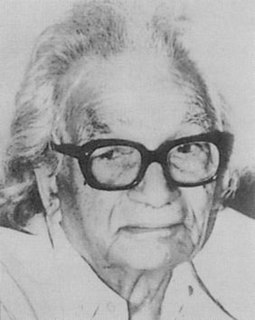 W
WSalimuzzaman Siddiqui, was a Pakistani organic chemist specialising in natural products, and a professor of chemistry at the University of Karachi.
 W
WAjay Kumar Sood is an Indian physicist, researcher and holder of 2 US and 5 Indian patents, known for his pioneering research findings on graphene and nanotechnology. He is a Distinguished Honorary Professor of Physics at Indian Institute of Science, Bangalore. The Government of India honoured him in 2013, with the Padma Shri, the fourth highest civilian award, for his contributions to the fields of science and technology. Sood was elected a Fellow of the Royal Society (FRS) in 2015. He has been on the Physical Sciences jury for the Infosys Prize from 2019.
 W
WVasudevan Srinivas is an Indian mathematician who specialises in algebraic geometry. He is a Senior Professor in the School of Mathematics of Tata Institute of Fundamental Research, Mumbai.
 W
WEnnackal Chandy George Sudarshan was an Indian-American theoretical physicist and a professor at the University of Texas. Sudarshan has been credited with numerous contributions to the field of theoretical physics, including Glauber–Sudarshan P representation, V-A theory, tachyons, quantum Zeno effect, open quantum system and Lindblad equation, spin–statistics theorem, non-invariance groups, positive maps of density matrices, and quantum computation. His other contributions include east–west relations, and the philosophy and religion.
 W
WZou Chenglu, better known as Chen-Lu Tsou, was a Chinese biochemist. He was a professor of the Shanghai Institute of Biochemistry and later a professor and Deputy Director of the Institute of Biophysics, Chinese Academy of Sciences (CAS). He made important contributions to the synthesis of insulin, and was elected an academician of the CAS and The World Academy of Sciences (TWAS). He won the TWAS Prize in Biology in 1992 for his pioneering study of enzyme inhibition kinetics, and was a six-time laureate of the State Natural Science Award. His wife, physicist Li Lin, was also an academician of the CAS.
 W
WMarcelo Miranda Viana da Silva is a Brazilian mathematician working in dynamical systems theory.
 W
WWang Zhizhen, also known as Chih-Chen Wang, is a Chinese biophysicist and professor at the Institute of Biophysics, Chinese Academy of Sciences. She also served as Vice Chairperson of the 11th and 12th Central Committee of the Jiusan Society and Vice Chairperson of the 12th Chinese People's Political Consultative Conference.
 W
WWu Wenjun, also commonly known as Wu Wen-tsün, was a Chinese mathematician, historian, and writer. He was an academician at the Chinese Academy of Sciences (CAS), best known for the Wu's method of characteristic set.
 W
WXue Qikun is a Chinese physicist. He is a professor of Tsinghua University, Beijing. He has done much work in Condensed Matter Physics, especially on superconductors and topological insulators. In 2013, Xue was the first to achieve the quantum anomalous Hall effect (QAHE), an unusual orderly motion of electrons in a conductor, in his laboratory at Tsinghua University. Xue is a member of the Chinese Academy of Sciences, vice president for research of Tsinghua University, and director of State Key Lab of Quantum Physics. In 2016 he was one of the first recipients of the new Chinese Future Science Award for experimental discovery of high-temperature superconductivity at material interfaces and the QAHE. This award has been described as "China's Nobel Prize".
 W
WMayana Zatz is a Brazilian molecular biologist and geneticist. She is a professor at the University of São Paulo, currently being its Research dean.